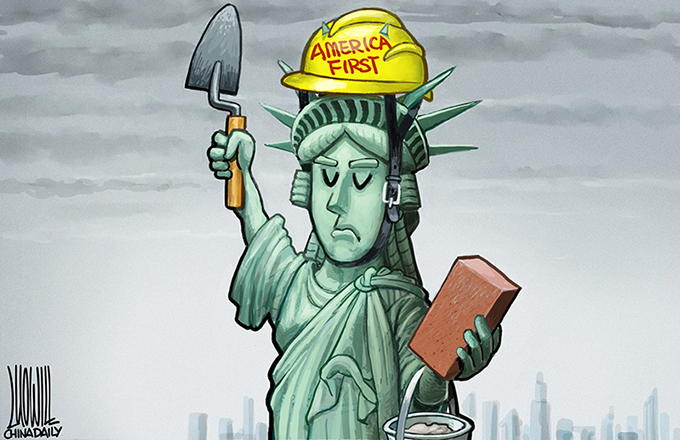



If it is understandable that the United States would want to prohibit government departments from purchasing high-tech products from other countries for security reasons, such concerns do not justify the US authorities placing a ban on Chinese smartphones in the US market.
Since the US government has long proclaimed itself to be the guardian of the market economy and fair competition, why does it choose to obstruct the access of foreign goods to the US market? In so doing, the US sends an unambiguous signal that it prioritizes the protection of the interests of a handful of groups while sacrificing market economic principles and the right of its consumers to know and to choose.
US President Donald Trump has time and again emphasized fair trade. However, recent cases indicate that for the US fair trade means taking all that benefits for itself.
Chinese companies such as Huawei and Alibaba have suffered one setback after another in their attempts to enter the US market, with the US authorities justifying their protectionism under the banner of national security.
In contrast, China has opened its doors wide to US goods and investors and it is now opening its financial and service sectors to the US.
The US' protectionist practices will not suffocate the growth of market competitors but instead lead to the suffocation of its economic development. In the era of economic globalization, no country can realize development by trying to isolate itself. Any politicizing of bilateral trade will only compromise the interests of both Chinese and US enterprises and consumers. Only by abandoning its Cold War approach and working together with China to make a bigger pie, can the US advance its trade ties with China in the correct direction.
- XINHUA NEWS AGENCY
If you have any problems with this article, please contact us at app@chinadaily.com.cn and we'll immediately get back to you.